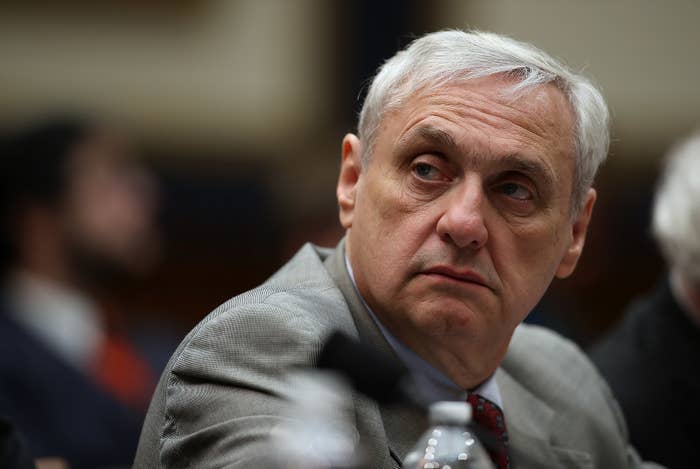
The panel of federal judges investigating allegations of sexual harassment by now-retired appeals judge Alex Kozinski closed its inquiry on Monday, concluding that because Kozinski had stepped down, there was nothing else it could do.
The Judicial Council of the 2nd Circuit wrote in its order that "given the seriousness of the conduct alleged," it would ask that the federal judiciary forward information about the complaint against Kozinski "to any relevant congressional committees."
Kozinski, who had served on the US Court of Appeals for the 9th Circuit since 1985, stepped down on Dec. 18, after the Washington Post reported that more than a dozen women — former law clerks who worked for Kozinski and other lawyers — had accused the judge of misconduct, including making sexual comments and engaging in unwanted touching. In a statement announcing his retirement, Kozinski said that he "had a broad sense of humor and a candid way of speaking to both male and female law clerks alike," and that it was never his intent to make his clerks feel uncomfortable. He did not address the allegations made by other women.
The chief judge of the 9th Circuit initiated a formal complaint against Kozinski on Dec. 14 based on the allegations reported by the Washington Post, and then asked Chief Justice John Roberts Jr. to assign another judicial circuit to handle the inquiry. Roberts assigned it to the 2nd Circuit.
In Monday's four-page order, the 2nd Circuit panel wrote that the complaint against Kozinski "references grave allegations of inappropriate misconduct, which the federal judiciary cannot tolerate." But the law that gives the judiciary the power to investigate misconduct complaints only covers accusations against sitting judges, not retired ones, the panel concluded.
According to the order, Kozinski hadn't yet submitted a response to the complaint against him. His lawyer Susan Estrich declined to comment.
Although the 2nd Circuit council asked to refer Kozinski's case to Congress, it's unclear if lawmakers would, or even could, take action. In September 2015, the Judicial Conference of the United States — the policymaking arm of the federal judiciary — voted to send a record of misconduct proceedings to the House of Representatives concerning Mark Fuller, a former federal district judge in Alabama who resigned amid domestic violence allegations.
The Judicial Conference's letter suggested the House could still pursue impeachment even though Fuller had stepped down, although the judges acknowledged the House might choose not to because he was already gone. The House did not initiate impeachment proceedings against Fuller.
But Fuller's situation differed from Kozinski's case because the judges investigating Fuller reached conclusions about the complaints against him, finding there was evidence that Fuller had abused his wife and made false statements during the investigation. The 2nd Circuit Judicial Council did not make any findings about the accusations against Kozinski.
Last year, the 10th Circuit Judicial Panel found that the retirement of Richard Roberts, a former federal district judge in Washington, DC, did not prevent the judiciary from investigating misconduct allegations against him. But Roberts retired under a different section of federal law than Kozinski did — Roberts retired citing a disability, which meant that he was still officially classified as a "senior judge."
Kozinski retired under a provision of US law that allows judges who have turned 65 and served at least 15 years on the bench to resign and receive payments equal to the salary they were earning when they stepped down for the rest of their life. In 2017, federal appeals judges earned an annual salary of $217,600.
This is a developing story. Check back for updates.

